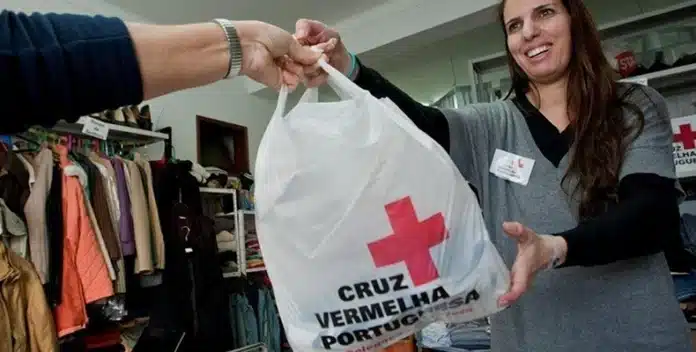Last two years have seen requests increase by 126%
The Portuguese Red Cross (CVP) has launched a national campaign to collect essential goods to pass on to the needy, writes Lusa today.
“With a presence in more than 630 stores and shopping centres”, the campaign is described as an “urgent appeal for national solidarity”, by the organisation, which explains that the number of people turning to it for help has increased by 126% over the last two years.
In a statement, the Red Cross says the institution is now under “enormous pressure to guarantee immediate responses to families in vulnerable situations”.
Far from the constant government claims that policies to tackle poverty and social exclusion are working, the Red Cross claims these scourges are actually growing, affecting working people just as much as the unemployed/ inactive, “which demonstrates the country’s difficulty in achieving an economic and social recovery after the pandemic”.
“We are facing a real social emergency,” the statement quotes national Red Cross president, António Saraiva. “Never, in the decades of CVP’s history, have we had such an abrupt increase in requests for support. Our response capacity is at its limit and we need society’s support more than ever to continue helping those who need it most.”
“This crisis doesn’t differentiate between statuses,” emphasises Saraiva. “We are no longer just supporting the unemployed or vulnerable populations, but also families on low and middle incomes who have been pushed into financial insecurity. The ‘Vale +’ campaign is an essential part of ensuring that these people have a minimum of dignity.”
How this campaign works is that either shoppers can deliver food/ hygiene products directly to participating shops, or CVP volunteers, or they can buy vouchers, or donate money vouchers.
According to the Portuguese Red Cross, the most sought-after non-perishable goods include milk, olive oil, tuna fish and hygiene products, while food cards are considered essential for the purchase of fresh produce and specific diets. These cards allow for a choice that is more suited to individual and family needs, guaranteeing a balanced diet and respecting dietary restrictions, says the organisation.
Source material: LUSA




















